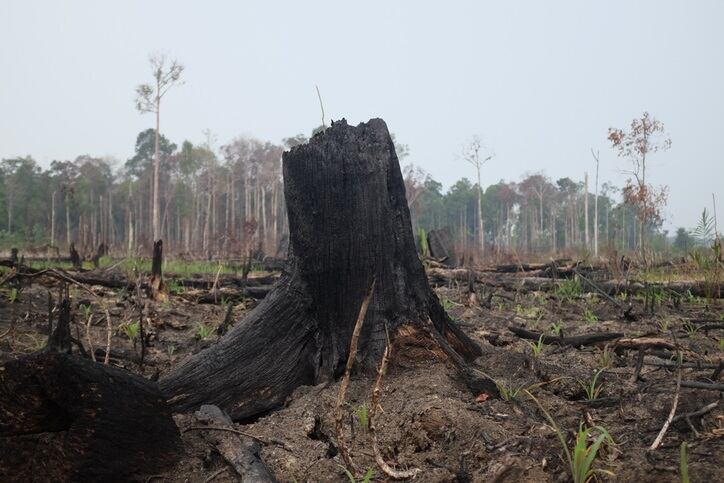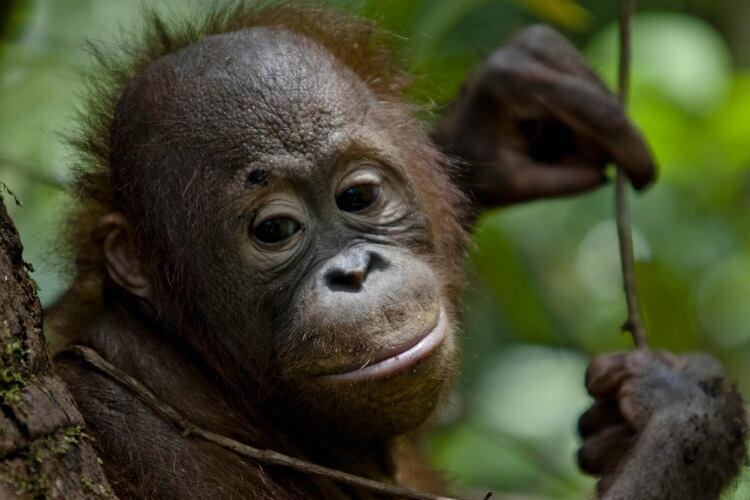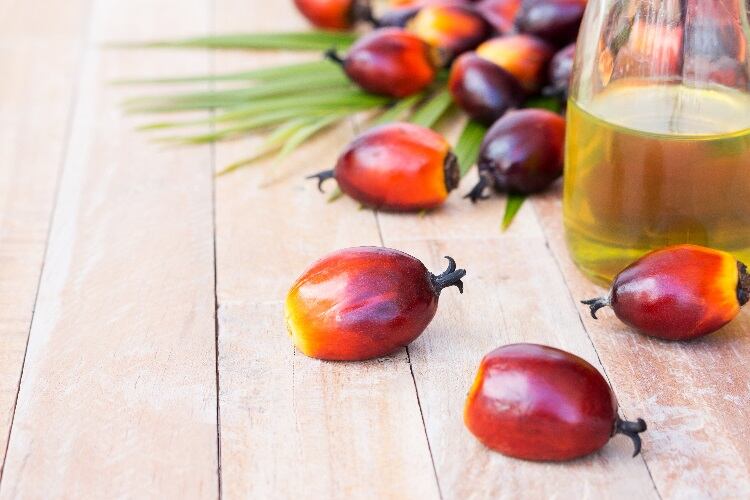The environmental watchdog has named Kellogg’s, General Mills, Nestlé, PepsiCo, Mondelēz, Unilever, Mars and Hershey – along with Cargill, Archer Daniels Midland Company (ADM) and AAK, among others – as the culprits of continued use of ‘conflict palm oil.’
At the heart of the issue are two palm oil mills located immediately adjacent to Sumatra’s Leuser Ecosystem, both of which RAN claims lack the necessary traceability procedures.
According to the RAN, field investigations earlier this year revealed the mills were receiving fresh fruit bunches (FFB) from a broker that had been harvested from oil palm trees that had been illegally planted on a site in the protected Rawa Singkil Wildlife Reserve.
RAN also alleged that, once processed, the oil is procured by some of the largest palm oil trading companies in the world – including Golden Agri Resources (GAR) and Musim Mas – and then finds its way into products produced by Big Snack and its affiliates.
As such, RAN contended the companies fingered are ‘directly or indirectly’ sourcing the controversial palm oil in violation of the No Deforestation, No Peatlands, No Exploitation (NDPE) policies to which they have publicly committed.
Evidence is ‘unequivocal’
The Leuser’s Singkil-Bengkung region is an international hotspot because of its carbon-rich peatlands, which are among the most effective natural carbon sinks on earth. Conversely, when annihilated, the peat soil transforms into carbon bombs that emit high levels of pollution into the atmosphere for many years.
The reserve is also a high-priority conservation area, home to the endangered Sumatran rhino, elephant and tiger, and dubbed the ‘orang utan capital of the world.’
“The evidence resulting from our investigations is unequivocal,” said RAN’s forest policy director Gemma Tillack.
“Despite the fact that these big name brands publicly promised to end deforestation for snack foods years ago, they are still sourcing from the companies driving palm oil plantation expansion into the heart of one of the highest priority conservation landscapes for addressing the climate crisis and wildlife extinction on the planet.
“The mills investigated here simply do not have the basic systems in place to ensure their palm oil is not driving rainforest destruction, so no company with a no-deforestation commitment can buy from them in good faith to their existing policy.”
Serious about allegations
We invited comment from the companies concerned, all of which are taking the allegations very seriously.
A Unilever spokesperson told us the FMCG provider does not have a direct relationship with mills in the Rawa Singkil area, but it does source from GAR and Musim Mas.
“Unilever is currently working with the IDH, the sustainable trade initiative, the government of Aceh Tamiang and other companies to develop a jurisdictional approach for the sustainable production of palm oil in the province,” she added.
Jeff Beckman from Hershey said the confectioner does not buy from GAR but has nonetheless reached out to its suppliers regarding this claim.
“Our understanding is that a corrective action plan was put in place, executed and, according to GAR’s own grievance page, there has been no further indication of deforestation. One of our direct suppliers is also monitoring the situation and is expected to close the case soon – sometime in Q4 2019.”
A Nestlé spokesperson said GAR had informed them that the two mills in question do not source the controversial palm oil.
“We immediately engaged with GAR, which requires all its supplier mills to establish traceability-to-plantation and to identify all the independent plantations and smallholders from which they source. Additionally, they also conducted verification on the ground. GAR confirmed that these two mills do not source palm oil from plantations engaged in deforestation activities in the Rawa Singkil Wildlife Reserve.”
A Mars spokesperson noted GAR is not a direct supplier but takes the allegations seriously and is working to understand what steps are being taken to address them.
“We expect that GAR will investigate fully and take appropriate actions pending verification of the results.”
Jackie Anderson, media relations for ADM, told us the company does not have any information on the situation with this specific supplier but stands behind its high standards.
“We take violations of our policies very seriously, thoroughly investigate any allegations and take appropriate actions as a result of those findings.”
Mollie Wulff, global communications manager for General Mills, added, although a relatively minor user of palm oil, it keeps its supplier list “to a curated handful of direct suppliers compared with industry peers who have dozens or even hundreds of suppliers.
“General Mills has already been raising and elevating the issue of Leuser deforestation with our direct suppliers as part of our ongoing supplier engagement process. We are confirming our expectation that suppliers adopt a no-buy position on the companies RAN has highlighted where deforestation is verified,” she said.
Kellogg spokesperson Kris Bahner told us GAR is not a direct supplier, however, “Kellogg is committed to working with its global palm oil suppliers to source fully traceable palm oil, produced in a manner that’s environmentally responsible, socially beneficial and economically viable.”
A spokesperson from Cargill also confirmed the ingredients supplier does not have direct dealings with the mills, but “understand that our suppliers are taking steps to address concerns in the Rawa Singkil Wildlife Reserve and the wider Aceh landscape.”
AAK's spokesperson told us the company's sustainable palm oil policy has yielded positive results over the years.
"An important part of this policy is our grievance procedure. Having become aware of the RAN report, we have started a grievance process. AAK shares the concerns that RAN has for the Singkil Wildlife Reserve and the Leuser ecosystem. Our first steps include investigation of the allegations made with our tier 1 suppliers. AAK is committed to resolving grievances in a timely manner after a full investigation.”
Jonathan Horrell, director, Global Sustainability, Mondelēz International, said the Oreo maker requires its suppliers to convert their entire supply chain to sustainable practices.
“We’ve made significant progress to incentivize plantation companies still deforesting to stop or be excluded. But we, the industry, cannot win the fight against deforestation alone and partnership with governments, suppliers, and farmers is critical for success.”
PepsiCo did not respond to requests for comment before going to publish.
Slow but constant
The Roundtable on Sustainable Palm Oil (RSOP) also emphasized the importance for the private sector, government and civil society to work together to protect vital natural resources.
A spokesman told us neither mill is a member nor certified by the organization, however, “we have not received any complaints lodged through RSPO’s Complaints System against the two mills or any RSPO members mentioned in the report relating to this issue. Nevertheless, in our commitment to transparency and accountability, our Investigation and Monitoring Unit (IMU) will monitor this allegation and escalate the matter further, if required."
A spokesperson from the Indonesia Palm Oil Association also confirmed neither mill is a member and does not have the necessary information to hand to comment on the matter.
A statement posted on GAR’s website notes it has approached both mills ‘to seek responses to the allegations contained in the RAN report. One of the mills has declared that they do not buy from CV Buana Indah and has agreed to be audited by our grievance team. We are awaiting a response from the second mill.’
It added it has been engaging with suppliers in Aceh to help them ‘overcome the specific challenges of the region’ and has made progress. It has a full traceability target by the end of 2020.
A spokesperson from Musim Mas told BakeryandSnacks the company wants to assure its stakeholders that it takes its commitment towards sustainability very seriously.
“Our suppliers have been asked to exclude the two [mills] and to ensure that their agents are not sourcing from inside the Rawa Singkil Reserve.
“The two mills … will enter into our Grievance Mechanism immediately and will be eligible to enter our Controlled Purchase Protocol following further engagement and verification; no new business with these either of these mills will be possible until they are compliant with our sustainability requirements.”
Like GAR, Music Mas is aiming at full traceability by the end of 2020.
Robert Nasi, director general of the Indonesia-based Centre for International Forestry Research, said there had been ‘a slow but constant erosion’ of the reserve’s peat-swamp forest.
“Fears are that, if this continues, the remaining orang utan population will become marooned on an isolated forest island in a sea of plantations.”
Resource:
The last of the Leuser Lowlands: Field investigation exposes big brands buying illegal palm oil from the Singkil-Bengkung peatlands
The Rainforest Alliance Network





